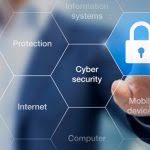FBI Warns of Solar Panel Cyber Threats What You Need to Know.
As the world continues to shift towards renewable energy sources, cyber threats are emerging as a significant concern for the industry. Recently, the Federal Bureau of Investigation (FBI) issued a warning to renewable energy companies and users, highlighting vulnerabilities in solar panel systems that could be exploited by cybercriminals.
The warning came in the form of a Private Industry Notification (PIN), which aims to inform private sector partners of potential threats and vulnerabilities. In this case, the FBI is sounding the alarm about the risks associated with solar panel inverters, a critical component of solar energy systems.
What are Solar Panel Inverters?
Solar panel inverters are devices that convert direct current (DC) power generated by solar panels into alternating current (AC) power, which is usable in homes and businesses. Inverters are an essential part of solar energy systems, as they enable the efficient and safe transmission of power to the grid.
The Cybersecurity Risk
The FBI’s warning highlights that solar panel inverters can be vulnerable to cyber-attacks, which could have serious consequences for the entire energy system. The vulnerabilities identified by the FBI include:
- Unsecured communication protocols: Many solar panel inverters use unsecured communication protocols, making it possible for hackers to access and manipulate the system remotely.
- Outdated software: Inverters often run on outdated software, which can leave them open to exploitation by cybercriminals.
- Lack of encryption: Data transmitted between inverters and monitoring systems may not be encrypted, making it easy for hackers to intercept and manipulate sensitive information.
The Potential Consequences
A cyber-attack on a solar panel inverter could have far-reaching consequences, including:
- Grid instability: A compromised inverter could disrupt the entire energy grid, leading to power outages and instability.
- Data theft: Hackers could steal sensitive information, such as energy usage patterns and personal data, which could be used for malicious purposes.
- Financial loss: Cyber-attacks could result in financial losses for companies and individuals, particularly if hackers are able to manipulate energy usage patterns or steal sensitive data.
How to Mitigate the Risk
While the FBI’s warning may seem alarming, there are steps that renewable energy companies and users can take to mitigate the risk of cyber-attacks:
- Implement secure communication protocols: Ensure that all communication protocols used by solar panel inverters are secure and up-to-date.
- Regularly update software: Regularly update inverter software to prevent exploitation of known vulnerabilities.
- Use encryption: Encrypt data transmitted between inverters and monitoring systems to prevent interception and manipulation.
- Conduct regular security audits: Conduct regular security audits to identify and address potential vulnerabilities.
- Check how the inverter in connected: Check your home Wi-Fi network.
Conclusion
The FBI’s warning serves as a reminder that cybersecurity is a critical concern for the renewable energy industry. As we continue to rely on solar energy systems to power our homes and businesses, it is essential that we prioritize the security of these systems. By implementing secure communication protocols, regularly updating software, and using encryption, we can minimize the risk of cyber-attacks and ensure a stable and secure energy system.







